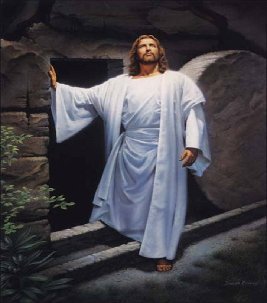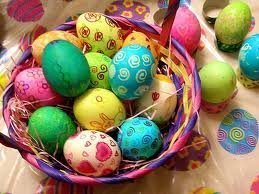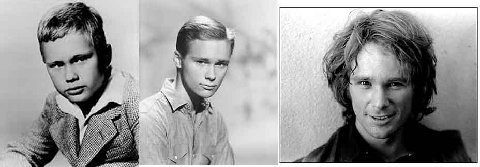Easter is the culmination, preceded by Lent, a forty-day period of fasting, prayer, and penance. The last week of Lent is called Holy Week, and it contains the days of the Easter Triduum, including Maundy Thursday (also known as Holy Thursday), commemorating the Last Supper and its preceding foot washing, as well as Good Friday, commemorating the crucifixion and death of Jesus. Easter is followed by a fifty-day period called Eastertide or the Easter Season, ending with Pentecost Sunday.
Easter is a moveable feast, meaning it is not fixed in relation to the civil calendar. The First Council of Nicaea (325) established the date of Easter as the first Sunday after the full moon following the March equinox. Ecclesiastically, the equinox is reckoned to be on 21 March (even though the equinox occurs, astronomically speaking, on 20 March in most years), and the "Full Moon" is not necessarily the astronomically correct date. The date of Easter therefore varies between 22 March and 25 April. Eastern Christianity bases its calculations on the Julian calendar whose 21 March corresponds, during the 21st century, to 3 April in the Gregorian calendar, in which the celebration of Easter therefore varies between 4 April and 8 May.
Easter is linked to the Jewish Passover by much of its symbolism, as well as by its position in the calendar. In many languages, the words for "Easter" and "Passover" are etymologically related or homonymous. Easter customs vary across the Christian world, but attending sunrise services, exclaiming the Paschal greeting (Instead of "hello" or its equivalent, one is to greet another person with "Christ is Risen!", and the response is "Truly, He is Risen", and decorating Easter eggs,
a symbol of the empty tomb,(Easter eggs are special eggs that are often given to celebrate Easter or springtime. As such, Easter eggs are common during the season of Eastertide. In Christianity, they symbolize the empty tomb of Jesus.: though an egg appears to be like the stone of a tomb, a bird hatches from it with life; similarly, the Easter egg, for Christians, is a reminder that Jesus rose from the grave, and that those who believe will also experience eternal life.) are common motifs. Additional customs include egg hunting, the Easter Bunny, and Easter parades, which are observed by both Christians and some non-Christians.
- 1 cup sugar
- 1 cup water
- 3 tablespoons cornstarch
- 1/4 cup (1 package) strawberry gelatin
- 5 cups fresh strawberries, halved
- 1 (9-inch) baked pie crust
- Whipped cream or frozen whipped topping, thawed (optional)
- In a medium saucepan over medium heat, bring sugar, water, and cornstarch to a boil; cook 1 minute or until thickened, stirring constantly.
- Stir in gelatin until dissolved. Remove from heat; let cool 8-10 minutes.
- Place strawberries in a large bowl and pour glaze over them. Toss gently until evenly coated, then spoon evenly into pie crust. Cover and chill 4 hours. Serve with whipped cream, if desired.
Easter is observed on the first Sunday following the full moon after the vernal equinox. Considered Christianity’s most important holy day, it celebrates the resurrection of Jesus Christ. Depending on which calendar a church follows, some will celebrate the holiday earlier than others.
Leading up to Easter Sunday is an entire season of observances beginning with Ash Wednesday, Lent’s official beginning. Lent is a time of fasting and reflection, which represents the time Jesus spent in the wilderness for 40 days. Many know this as a time when Christians give something up for Lent.
Then during Holy Week, the Sunday before Easter is known as Palm Sunday. It commemorates Jesus’s entry into Jerusalem on a donkey just five days before the Romans crucified Him. Maundy Thursday remembers Jesus’s last supper; Good Friday is the day of the crucifixion; Holy Saturday is the period between the crucifixion and the resurrection; and Easter Sunday.
HOW TO OBSERVE
If you choose, you can participate in any number of church services. Some churches conduct sunrise services. Dye eggs with children and have an Easter egg hunt. Local communities hold annual egg hunts as well, so check your local social media, newspapers, and community listings for dates and times.
EASTER HISTORY
Before Easter (Pascha), Passover was the primary holy day celebrated; however, Christianity closely links the two holidays. Jesus’s last supper was a Passover meal. By the 2nd century, Orthodox Christians also celebrated Pascha alongside Passover as well as pagan spring festivals.









No comments:
Post a Comment